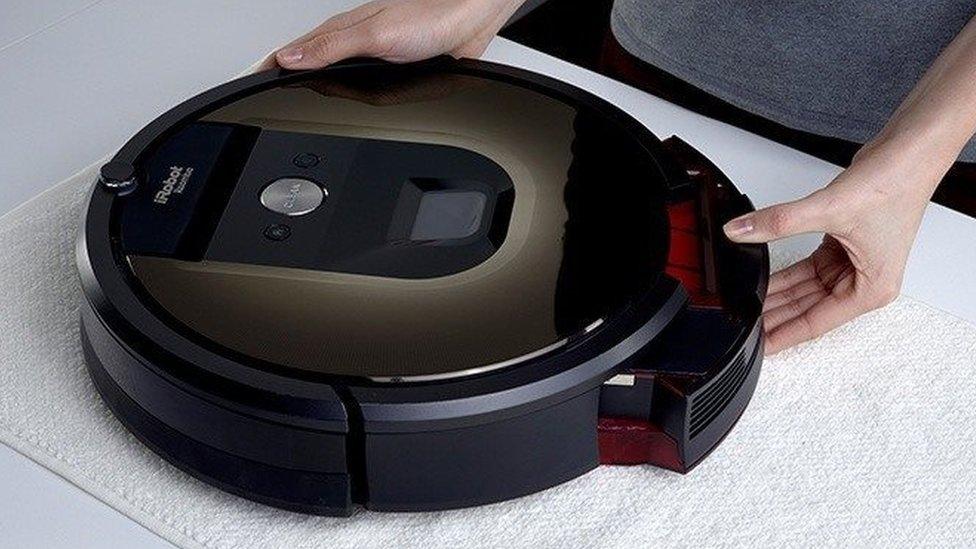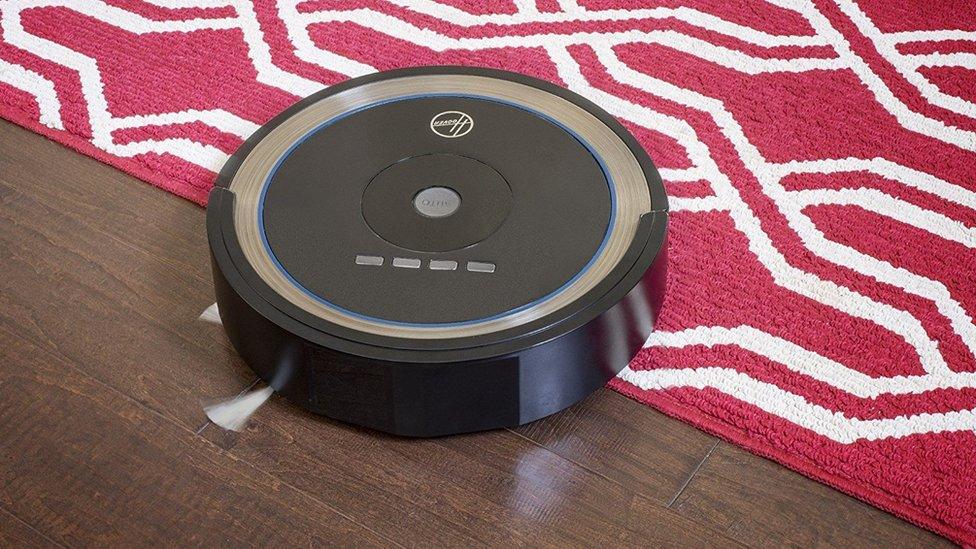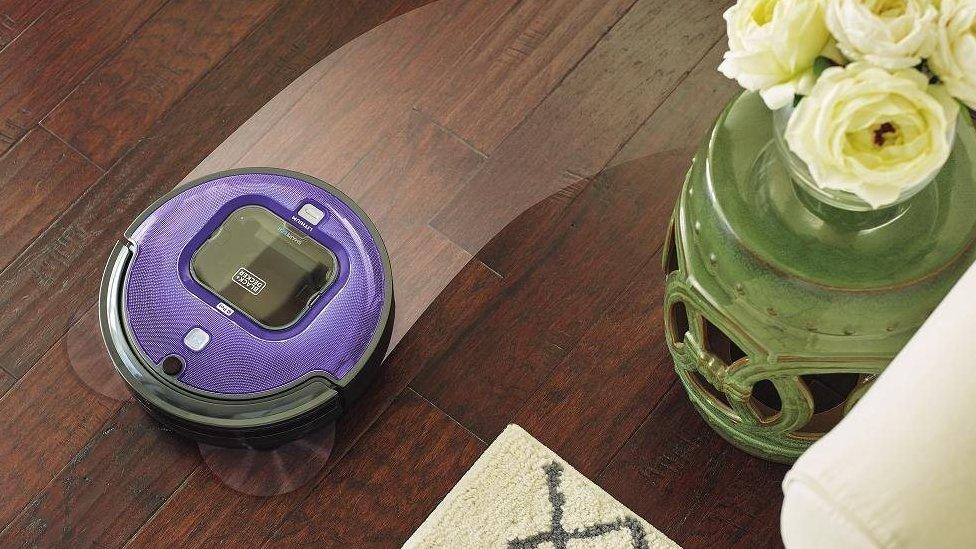iRobot sues Hoover and Black & Decker over robo-vacuums
- Published

iRobot says several of the patented technologies used in its Roomba range have been copied without permission
Robotic vacuums specialist iRobot is suing Hoover and Black & Decker among others over claims they used its technologies without permission.
The Massachusetts-based company cites a variety of patents in its legal filings, including misuse of its obstacle-detection system, brush designs and navigation controls.
It is seeking financial compensation and the right to block further use of its tech.
Most of the firms have yet to respond.
iRobot began selling robot vacuums under the Roomba brand in 2002 and says it has sold more than 15 million units to date.
"The filing of this litigation signals our commitment to protecting our investments," a spokesman said.
"iRobot will not stand by while others offer products that infringe on our intellectual property."
Hoover launched its first robo-vacuum - the Quest 1000 - last year, while Black & Decker only unveiled its Smartech robot range at the CES trade show in January, and has yet to put them on sale.

Hoover is a relatively new player in the robotic vacuum market
Others being sued include:
Shenzhen Silver Star Intelligent Technology - a Chinese firm that manufactures the robot vacuums sold by Hoover and Black & Decker
Bobsweep - a Canadian robot vacuum-maker
Bissell Homecare - a US vacuum cleaner and carpet products firm
Suzhou Real power - a Chinese company that makes replacement parts for Hoover
"We find it interesting that in face of falling behind technologically, and losing market share year over year, the last strategy [iRobot] resorted to was steering the competition away from branding, tech innovation, and customer satisfaction, and directing it towards courts, intimidation and litigation," said Bobsweep in a statement.
"Not only will we defend Bobi and win, but we will continue to take the lead from those who try to compensate for their stagnation with a legal spree."
This is not the first time iRobot has gone to the courts over an intellectual property dispute.

Black & Decker's robot vacuums are due to go on sale in June
It sued four German companies over related claims, external in 2013.
Prior to that it sued Robotic FX, external over allegations the military robotic specialist had stolen trade secrets, which led the Chicago-based company to dissolve in 2007.